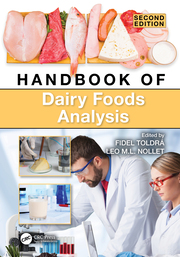Successfully marketing dairy products to meet consumer wants and needs is not as cut-and-dry as it used to be. One big reason is that consumers’ attitudes about what they expect out of dairy products today, and the companies that sell those products, are changing. No longer is it just about taste, freshness, convenience and price. While those remain important, factors related to health and wellness and social responsibility have assumed increased importance.
To enjoy success in the future, dairy companies need to act now to protect their image, and that of the entire dairy category. Dairy Management Inc. (DMI), which manages the national dairy checkoff program on behalf of America’s dairy farmers, is launching a major industry-wide initiative to maintain and enhance this image. Every dairy farm and dairy company can help.
First, let’s talk about why this is important. The 2010 Edelman Trust Barometer, an annual survey developed by Edelman Public Relations, measures changes in consumer trust and perceptions of credibility toward organizations and entire industries. The survey concluded that, while quality and performance remain a core component to consumer trust, an industry’s perceived performance as a good citizen and “steward of society” has become equally important.
This new paradigm presents challenges and opportunities to our industry. Americans are increasingly disconnected from agriculture; the agricultural sector now employs less than 2% of the nation’s workforce. Also, animal agriculture activists - who are well-funded, well-organized and increasingly focused on dairy - have created an increasing threat to ongoing consumer trust in dairy.
That said, our industry is in a better position than ever to assure that trust, due to DMI initiatives that offer systems and science, commitment to community and multiple pathways to reach consumers.
Systems and science
Dairy producers have a decades-long history of funding credible, third-party nutrition and product research showing the health and nutrition benefits of consuming dairy products.Over the past several years, the dairy industry has formed other key systems to provide reassurance to consumers. For example, through the Innovation Center for U.S. Dairy - a DMI-formed entity that allows the entire dairy industry’s “value chain” to work together to help grow sales - the industry recently completed a scientific study of dairy’s carbon footprint, setting the record straight on the U.S. dairy industry’s actual impact regarding greenhouse gas emissions.
The Innovation Center also formed an industry-wide task force to address food safety challenges and solutions in dairy processing and manufacturing plants. Further, the National Milk Producers Federation developed its Farmers Assuring Responsible Management (FARM) animal-care program, which has the support of producers representing more than half of the nation’s milk supply.
Commitment to community
The dairy industry’s commitment to community starts with a long-standing legacy of stewardship for the land and water. This commitment extends to the people you employ, and the other businesses you support in your community. The public needs to know this. This commitment to community can also be shown through dedicated children’s health and wellness efforts to provide nutritious foods (including dairy) and physical activity in our nation’s schools through the “Fuel Up to Play 60” program. The dairy industry is becoming a driving force in forming public-private partnerships to help solve childhood obesity, the nation’s leading public health issue.To support “Fuel Up to Play 60,” DMI created a new foundation with the goal of raising $10 million annually to reward schools that provide for better nutrition - including kid-friendly foods like milk, cheese and yogurt - and physical activity. This effort is a critical part of reinforcing the reputation of the dairy industry within local communities.
Pathways to consumer trust
The dairy industry has multiple paths to build trust and loyalty among consumers. One example is through the Innovation Center’s Consumer Confidence Committee, which helps the entire industry speak with a unified voice to food retailers, foodservice restaurants and others about topics like health and wellness, animal care, food safety and environmental stewardship.Another pathway is through dairy marketing partners that reach millions of consumers. Partnerships with companies such as McDonald’s and Domino’s Pizza allow us to share dairy-friendly messaging through packaging, in-store promotions and other activities.
A third pathway is the vast human resources of the dairy industry itself. Thousands of people employed by dairy promotion, co-ops, processors and manufacturers call on businesses, institutions and schools every day. There is a great opportunity to activate them to help share dairy’s story with the public.
With these strengths working together, we can create a tipping point to a new foundation of consumer trust, where positive voices can drown out the negative. That’s the legacy of the U.S. dairy industry. Now is the time to proactively tell this story to build a new foundation of consumer trust. Stay tuned for more details on this as 2011 progresses.
Dairy Foods seeks essays from dairy processors. Contact chief editor Jim Carper at carperj@dairyfoods.com.









